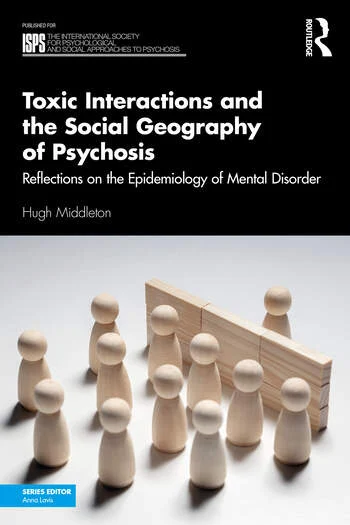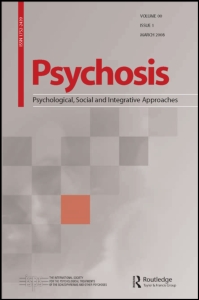Report from 2nd Annual ‘Making Sense of Psychosis’ conference in 2004
September 7, 2012 2012-09-07 17:40Report from 2nd Annual ‘Making Sense of Psychosis’ conference in 2004
I recently attended the Making Sense of Psychosis conference held at Auckland University, Auckland. It was one of the most inspiring and well informed conferences I’ve attended. The conference was organised by a diverse group of people who share a guiding philosophy that positions ‘psychosis’ in a socio-political and cultural context and recognises the centrality of trauma and life adversity in understanding and working with mental distress. To this end the presenters variously addressed the importance of the social conditions of people’s lives and the need to provide talking therapies as an essential component of the recovery process for people diagnosed with psychosis. Several speakers presented research to show that a diagnosis of psychosis often meant no therapy (especially not trauma therapy).
Ron Coleman, described as a ‘leading light in the hearing voices movement in Europe’, gave the keynote address. Here is a brief synopsis of key points from his presentation. Ron discussed the notion of schizophrenia as a medical construct that lacks reliability, and addressed the significant increase in DSM diagnoses which means more and more human experience is pathologised and subject to medical intervention. He talked about the damaging consequences of being diagnosed with schizophrenia and how the dominant medical model generally meant symptom management, services for life, low self expectations, low staff expectations, social isolation and social control, loss of rights, and no expectation of exiting the mental health system. He described this as a maintenance model not a recovery model.
He discussed recovery as a process requiring a plurality of approaches to meet the needs of diverse peoples and cultures. Key components of this process include an holistic, integrated systemic approach to mental health; the availability of diverse therapies to all service users; high mental health service staff expectations; a change in the core beliefs of mental health team members; positive risk taking/appropriate age related behaviour; social inclusion; rights, advocacy and responsibility; and a genuinely person centred, contextual approach to working with psychosis. He stressed the need for self-determination, interdependence, strong social networks, empowerment and choice, and the expectation and potential to exit the mental health system. A recurrent theme in Ron’s address was a belief that most people can recover from psychosis and that the mental health system needs to radically change to convey this message. Finally, he commented that if psychosis is only regarded as biological, society is permitted not to consider or change the conditions of people’s lives.
The conference inspired me to purchase Models of Madness: Psychological, Social and Biological Approaches to Schizophrenia, John Read, Loren Mosher and Richard Bentall (Eds) 2004. Several of the contributors to this book were speaking at the conference. In my view this book represents an important movement away from the current biochemical, drug oriented, medical dominant model of mental illness (supported by a multibillion$ pharmaceutical industry). The ideas conveyed in this book provide a holistic, socially contextualised understanding of mental health in which the conditions of people’s lives (including their biology) are fundamental. The strong relationship between childhood trauma and psychological distress “makes sense” and is well supported by research worldwide. The importance of integrating psychological, social and biological approaches is undoubtedly crucial to the process of recovery; a process that means more than drug maintenance and social control.
Dr Heather Barnett, Researcher – Young Adults Project, Contractor for Mental Health Commission.



